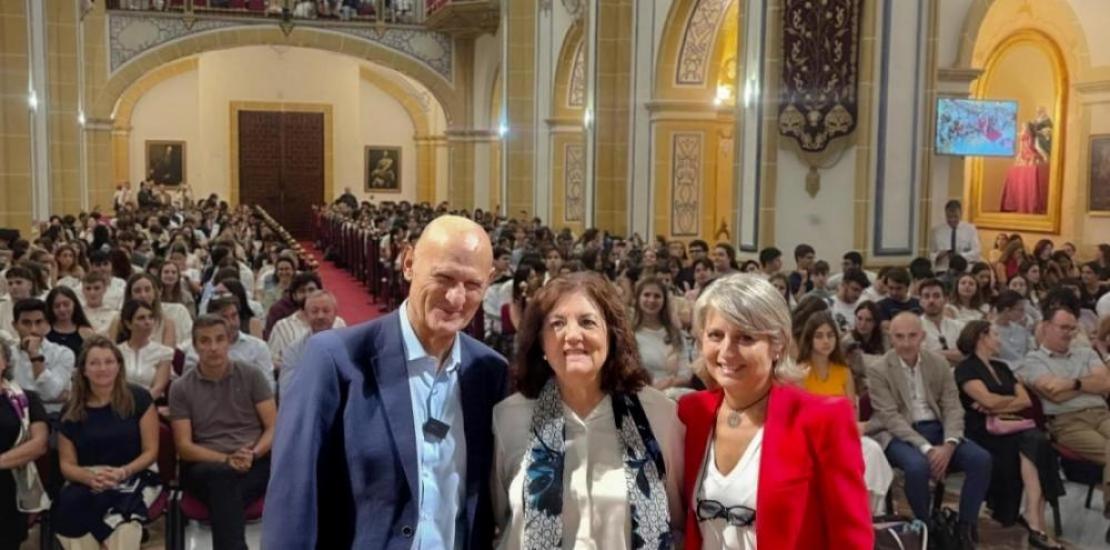Izpisúa shares his passion for research with UCAM health students
The UCAM Professor of Developmental Biology and Director of the San Diego Science Institute of Altos Labs (USA) has met with more than 600 students, to whom he has conveyed the importance of research in the field of health.
Last Wednesday, the Temple of the Monastery of Los Jerónimos became a lecture hall for more than 600 students from the health sciences field at the Universidad Católica de Murcia who, expectantly, exchanged their daily notes for a lecture by the researcher Juan Carlos Izpisúa, UCAM Professor of Developmental Biology and Director of the San Diego Science Institute of Altos Labs (USA).
His intervention went far beyond a presentation on his latest research. ‘The most important message’ he wanted to convey to the students was ‘how important research is for human health’, encouraging them to devote themselves to it. The UCAM professor referred to the fact that when a person reaches the end of their life, they do not say that they would have liked to earn more money, but rather to spend more time with their loved ones and to have done something to help others, ‘and scientific research in the field of health could be part of this reflection’, celebrating the fact that caring for the health of others is ‘what you have all decided to dedicate yourselves to’.
Izpisúa thanked UCAM for its long-standing support in the field of research.
Juan Carlos Izpisúa thanked the support received from the beginning from the founder of the UCAM, José Luis Mendoza, and continued by the current president, María Dolores García, because they have shown that ‘alone you can go faster, but together you can go much further’. Thanks to them, we are making great advances that we hope will soon reach the clinic’. Research funding in Spain is a subject of debate, ‘but there are exceptions’, the researcher pointed out, referring to the support he has been receiving from UCAM in Murcia for years, and which ‘shows that sometimes, with will and determination, world-class research can be done’. He also thanked the work of the different researchers at the University who are collaborating directly with him, the Hospital Clinic de Barcelona and the San Diego Science Institute of Altos Labs.
The future: reversing disease
Joined by Estrella Núñez, UCAM Vice-Rector of Research, the professor from the Universidad Católica de Murcia stressed that up to now most diseases are not reversed, they are treated: ‘Current medicine has not yet advanced enough for us to be able to use the concept of reversing the disease on a daily basis’.
Regarding the importance of coordination between basic and applied clinical research, he said that ‘in the laboratory we seek knowledge, we use animal models, but in the end, although we know a lot about mouse health, what we are really interested in is improving human health’, stressing that transferring this knowledge from the laboratory to the clinic ‘is a fundamental part of our activity’.




